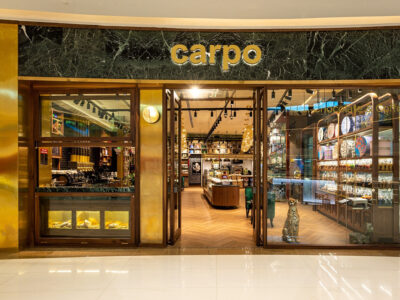Saudi Arabia’s e-commerce market is forecast to exceed SR50 billion by 2025 after witnessing rapid growth in recent years.
Driven predominantly by apparel, electronics and appliances, e-commerce sales have increased by more than 30 percent on average annually, with growth observed across all categories.
Boston Consulting Group’s (BCG) new research showed that the sector’s market value increased by almost 60 percent between 2019 and 2020.
It added that e-commerce growth in the kingdom largely outpaces that of traditional retail and shows no signs of abating.
However, the segment is still in a nascent phase at present despite undergoing fast growth. In 2020, online sales in Saudi Arabia accounted for approximately 8 percent of total retail sales compared to 18 percent worldwide.
This figure is also much lower than those in leading e-commerce markets where penetration easily exceeds 30-40 percent.
“The e-commerce market in Saudi Arabia is smaller in comparison to some of the bigger e-commerce markets, such as China, US, and the UK, however, its tremendous potential is already apparent despite its infancy, and the advancement of a robust e-commerce ecosystem in the years ahead will present a multitude of economic and social benefits,” said Pablo Martinez, managing director and senior partner, BCG.

“From an economic standpoint, increased retail spending nationwide is primed to be among the most prominent, a trend that is a near certainty due to more products becoming accessible to large audiences and foreign retail expenditure being captured. Together, these factors will yield several positive outcomes, all of which will come to fruition in due course,” he added.
The research, prepared in collaboration with Meta, said the growth of the kingdom’s e-commerce industry will generate a significant number of jobs including skilled positions in management and technical work functions.
“At the same time, a thriving e-commerce sector will support entrepreneurial activities due to low entry barriers for specialised players,” it added.
Suha Haddad, director of agencies and ecosystem development for MENA, Meta, said: “Consumers are increasingly shifting their purchasing online, with e-commerce sales soaring across all industries. The kingdom is now more connected to the rest of the world than ever before and Saudi consumers are also demanding a new kind of relationship with brands.
“We are seeing users in the kingdom engage with each other in creative ways, and businesses of all sizes leveraging our family of apps to drive growth domestically and across the world.”

“Looking ahead, job creation, entrepreneurship, and further technological adoption and progression will be driven by the evolving e-commerce sector, collectively making invaluable contributions to the Kingdom’s economy and society,” said Chris Biggs, managing director, senior partner and global leader of BCG’s Retail Sector.
“As such, the coming period represents an opportunity to move the industry forward and ensure every concerned party can capitalize fully on these awaiting benefits.”
While efforts are ongoing to improve the digital ecosystem and advance modern trade and e-commerce in the kingdom, BCG said the government has a significant role to play in ensuring that the speed and quantity of shipping and delivery services are improved, especially outside main metropolitan areas.
According to BCG, it must also incentivise and foster healthy competition and innovation in the delivery arena and ensure a smooth flow of goods across borders while creating a system that develops entrepreneurs to nurture the growth of local businesses.
“The growth of the Saudi e-commerce market and the projections through 2025 illustrate enormous possibilities and potential for consumers, businesses, and the country. The sooner these imperatives are pursued and solidified, the substantial pace at which the sector is developing will accelerate further,” said James Brindley, managing director and partner, BCG.
“It is important to appreciate that a proactive collection of government policies will lay the foundations for infrastructure enhancement, business progression, and the Kingdom’s retail sector becoming a renowned digital influencer regionally and globally. As such, meeting these imperatives should be a topmost priority.”








